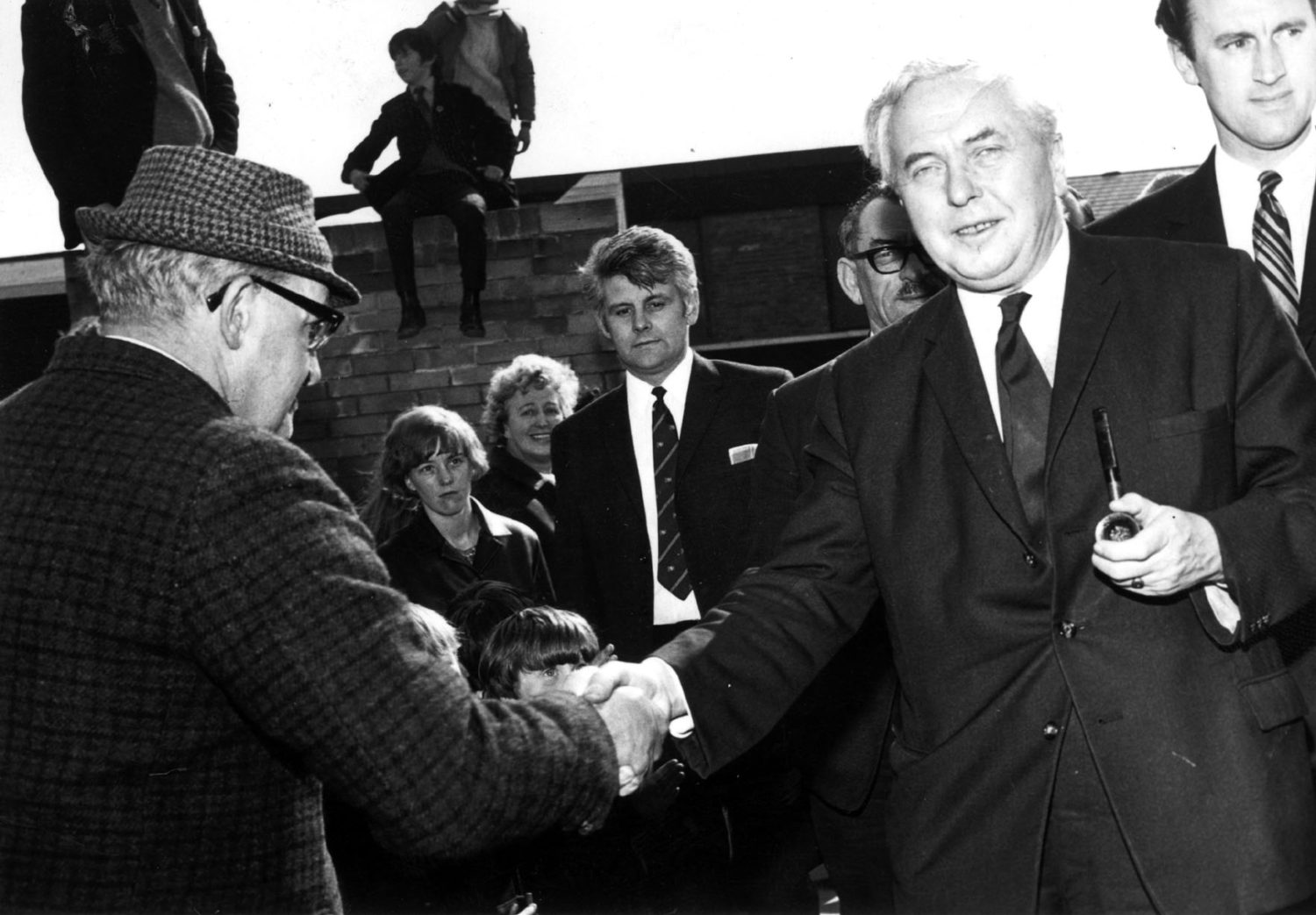A moral crusade
It is time to recognise the many achievements of Harold Wilson’s governments, writes Nick Thomas-Symonds MP
Harold Wilson was Labour’s ‘winner’: no other party leader has triumphed in four general elections. Yet, what has – too often – been overlooked is the constructive achievement of his governments that modernised our society, making it more equal and more just. In office from 1964 to 1970, and then for a further two years from 1974, Wilson was a reforming prime minister whose legacy was a real improvement in many people’s everyday lives.
From the vantage point of 2022, we can reflect on his wise decision not to commit British troops to the American war in Vietnam and his ability to secure the result he wanted in the first European referendum of 1975, with 67 per cent voting in favour of remaining in the Common Market. On 7 June, the day after the referendum, the Daily Telegraph could not have been clearer in its judgment: “The result is quite frankly a triumph for Mr Wilson.” Wilson also emerges as a change-maker; his Congregationalist background was often evident in his speeches, most obviously at the 1962 party conference when he said that the Labour party was “a moral crusade or it is nothing.”
In a period of great economic turbulence, Wilson’s two periods in office had a profound impact on society. His first government passed the very first piece of legislation addressing discrimination on the grounds of race. The Race Relations Act 1965 applied to public places such as hotels, pubs and theatres, and created a new criminal offence of incitement to racial hatred, together with a Race Relations Board. A second Race Relations Act came into force in November 1968, outlawing discrimination in housing, employment and access to public services.
Enoch Powell had spoken against the measures in his infamous speech in Birmingham on 20 April 1968. Quoting the epic poem Aeneid, and the prophecy of wars, he predicted a race conflict: “As I look ahead, I am filled with foreboding. Like the Roman, I seem to see ‘the River Tiber foaming with much blood’.” The ‘Rivers of Blood’ speech, as it was to become known, was a speech of hatred and division. A horrified Wilson responded with a set-piece speech of his own in Birmingham on 5 May 1968: “… I am not prepared to stand aside and see this country engulfed by the racial conflict which calculated orators or ignorant prejudice can create.” He appealed to a very different history from that of Powell, citing British values of “tolerance, of kindliness, and of fair play, qualities for which the British people are admired throughout the world”. The journey of change continued. The Race Relations Act 1976, though it completed its passage through parliament after Wilson had left office, extended protection to indirect discrimination.
This Act was a change in response to the Sex Discrimination Act of 1975 which had covered indirect discrimination, and received Royal Assent around the same time as Barbara Castle’s 1970 Equal Pay Act finally came into effect – a five-year transition period had been allowed for the latter. The Equal Pay Act benefited women in workplaces across the country, who had been discriminated against with inferior terms and conditions in comparison to those of their male counterparts. At the same time, all workers – men and women – gained from further additional protections. The Health and Safety at Work etc. Act 1974 introduced the Health and Safety Executive, still the national regulator today. The Employment Protection Act 1975 introduced the UK’s first maternity leave legislation, introducing six weeks of paid leave after having a baby and a right to return to the same or similar job for up to 29 weeks. It also introduced the Advisory, Conciliation and Arbitration Service (ACAS), a body that could be called upon to facilitate the finding of solutions in industrial disagreements that proved so effective it is still a central aspect of dispute resolution in the 2020s.
If Wilson can claim to have laid foundations of modern employment law, he can also claim to have changed how people lived their everyday lives. Welsh Labour MP Leo Abse created the 1967 Sexual Offences Act, which legalised homosexuality, meaning people could love who they wanted to without fear of blackmail or a knock at the door from the police. That same year, David Steel’s Abortion Act legalised terminations up to 24 weeks. Whilst both pieces of legislation – moral issues on which ministers remained neutral – were sponsored by backbenchers, they needed the government to allow them enough time to complete their passage through Parliament. Roy Jenkins, as Home Secretary from 1965 to 1967, was a strong supporter of creating what he called a ‘civilised society’. Wilson, with his religious background, was a social conservative. Yet he could have stopped these reforms and chose not to do so. After all, George Brown and James Callaghan, who together with him were the dominant figures in the Cabinet at the time, shared his concerns about time being given to the Bills: so, had Wilson overruled Jenkins, the position would have been supported by them.
Social reform continued. Theatre censorship was abolished in 1968. The Divorce Law Reform Act of 1969, following another Abse campaign, introduced ‘no fault’ divorce so that people were no longer trapped in loveless marriages. The Matrimonial Proceedings and Property Act 1970 allowed courts to order financial support for children from either spouse when marriages broke down, and also sought to correct the bias whereby both parties kept their earnings and inheritances post-divorce, which meant, at the time, that women, who often did not work, lost out.
In the field of criminal justice, Wilson was proud that, in 1965, capital punishment had finally been abolished, and, in 1967, corporal punishment, still then applied in prisons, was ended.
In education, the crowning achievement was the creation of the Open University, with Nye Bevan’s widow Jennie Lee charged with making Wilson’s vision of a “University of the Air” a reality. Opened in May 1970, the Open University provided opportunities for those who had not thrived in their formal education, or had not been able to access higher education, and addressed the need to skill and re-skill people throughout their adult lives. It has stood the test of time, has had over two million students, and is one of the largest universities in Europe. None of these opportunities would have been available without Wilson’s passion to see the policy through. Wilson also started the move away from academic selection at the age of eleven, via Tony Crosland’s Circular 10/65, of 12 July 1965, issued to local education authorities to move to a system of comprehensives. At the same time, the Representation of the People Act of 1969 reduced the voting age from 21 to 18.
Wilson’s Britain moved beyond the judgemental, stultifying society of the 1950s. His was a country of tolerance, respect and second chances. He gave rights and legal protections to people that they had never had before. One of Wilson’s best-known phrases was that ‘a week is a long time in politics.’ It was meant to convey that political leaders should not be diverted from long-term aims by short-term crises. Yet it came to be understood as the opposite: that his moves were designed to survive the next week with little care for the long-term consequences. It is time to move beyond such misperceptions and to recognise all that Wilson did.
Nick Thomas-Symonds’ new book, Harold Wilson: The Winner, is published by Weidenfeld and Nicolson
Image credit : Tyne & Wear Archives & Museums via Wikimedia Commons

